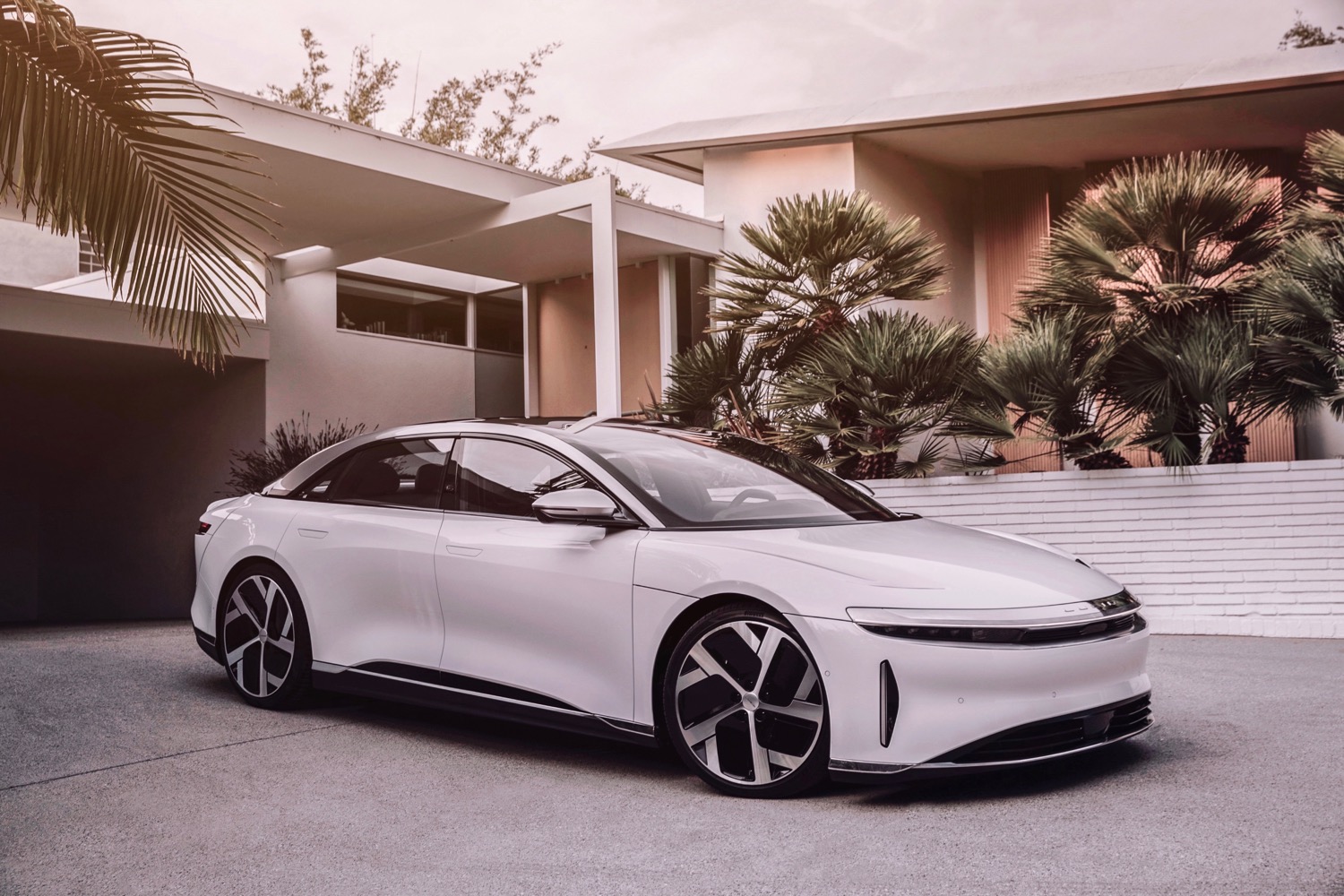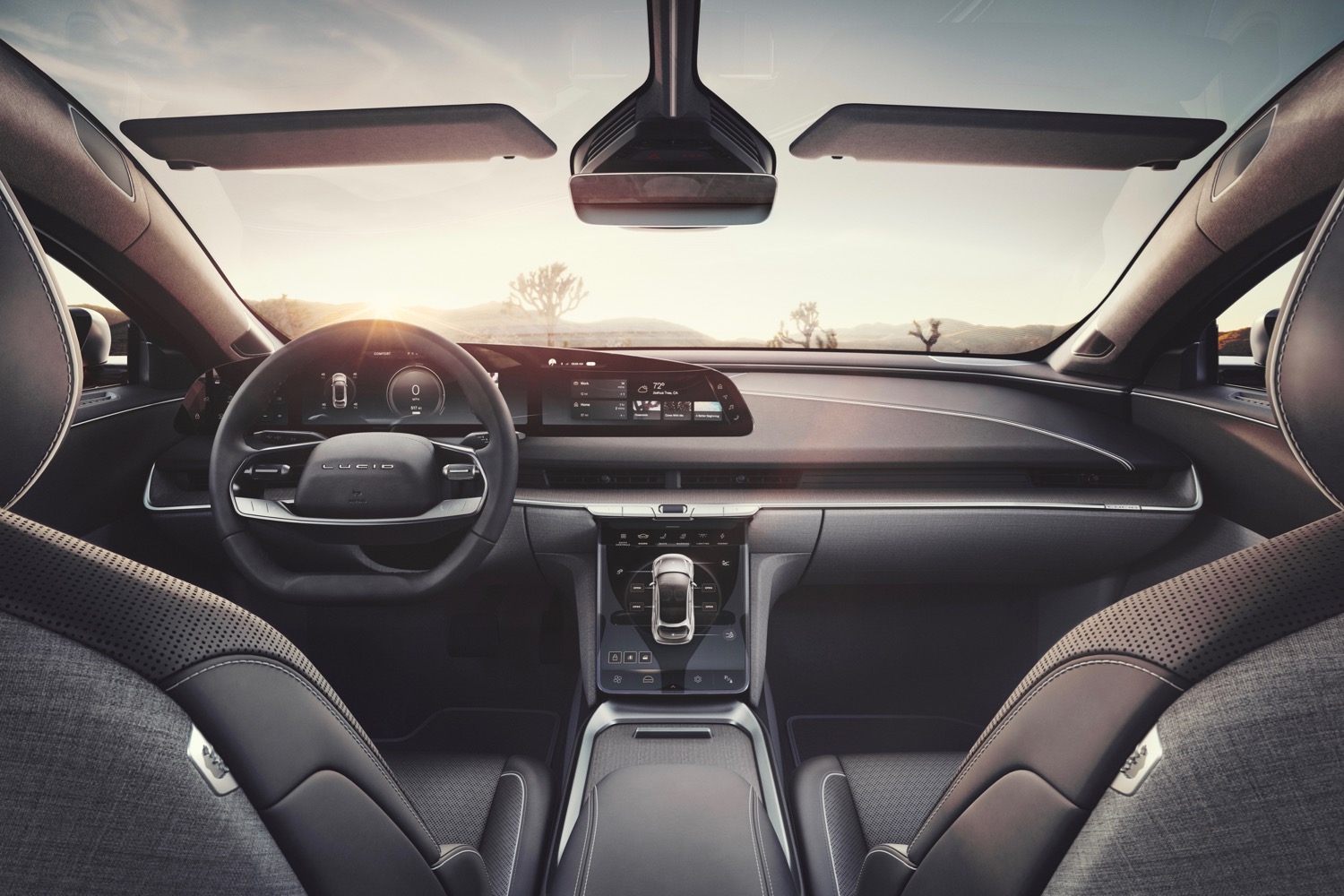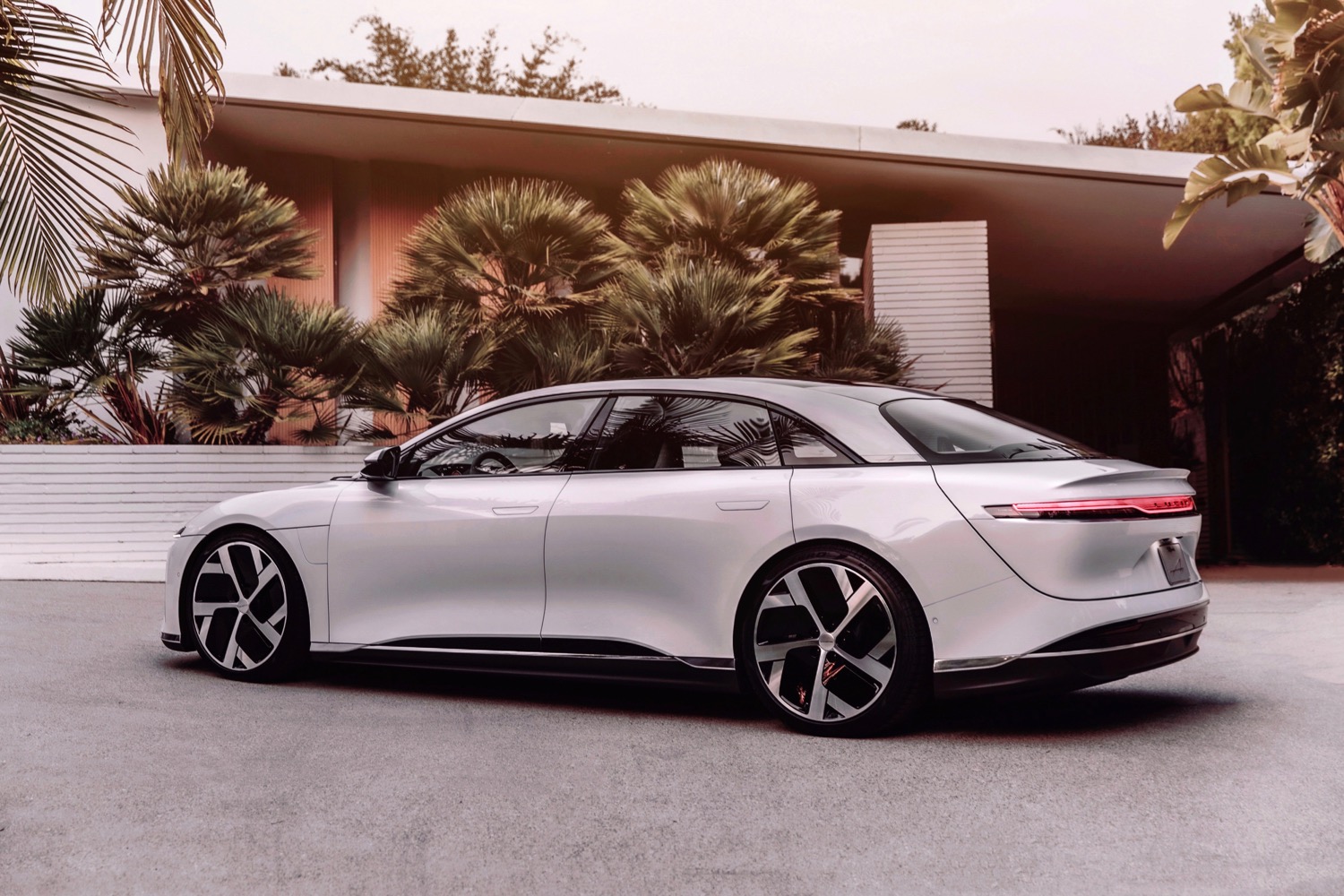Of the many potential Tesla rivals cooked up by both startups and established automakers, the Lucid Air might be the first one to hit the target.
Like the Tesla Model S, the Lucid Air is an electric luxury sedan that emphasizes performance and tech, while offering enough driving range for long road trips. What’s more, the people behind it know a thing or two about making cars.
Lucid CEO Peter Rawlinson was chief engineer of the Model S, while design boss Derek Jenkins is a veteran of Mazda, Volkswagen, and Audi. The company itself started out as Atieva, making electric powertrain components for commercial vehicles, and it currently supplies batteries for Formula E racing.
Not that the Air hasn’t experienced some turbulence. Lucid unveiled the car in late 2016 and announced plans for a factory in Casa Grande, Arizona, but soon ran out of money to continue development. A $1 billion investment from Saudi Arabia’s sovereign wealth fund saved the project and, the company claims, allowed engineers to make improvements to the car.
Lucid now plans to start customer deliveries in spring 2021, and is eyeing an SUV as its second model. In the meantime, here’s everything you need to know about the Lucid Air electric car.
Design
An electric powertrain takes up less room than a conventional internal combustion engine, transmission, and driveshafts, which allowed Lucid to make the Air “smaller on the outside, and bigger on the inside,” Rawlinson told Digital Trends during an online preview of the Air. The car is shorter and narrower than a Tesla Model S or Porsche Taycan, but with comparable interior space, Rawlinson said.
Borrowing a trick from 1990s Chrysler “cab-forward” sedans, the Air has a fairly short hood, making more room for the passenger compartment, Jenkins told Digital Trends. Nonetheless, the Air still has the largest “frunk” of any current production car, Rawlinson said.
Fittingly for a car called Air, Lucid’s sedan is also very aerodynamic. It has a drag coefficient of 0.21, compared to 0.23 for the Tesla Model S. That low drag coefficient means the car can cut through the air with less effort, increasing efficiency and boosting range. Aerodynamics were the reason behind most of the Air’s key design features, including the smooth front end.
Instead of a big grille, a small opening toward the bottom of the front bumper channels air into a “vortex generator,” and then to the radiators.
“A traditional grille is in some way old-fashioned,” Jenkins said. “We simply don’t need that much air.”
Slots in the hood and the front corners channel air around the car efficiently. Lucid also hid the sensors for its driver-assist system behind the bodywork, giving the Air a much cleaner look than many other luxury cars.
Tech
Speaking of driver-assist systems, Lucid is going head-to-head with Tesla Autopilot. At launch, Lucid’s DreamDrive will support 19 functions, including traffic-sign recognition, a distracted/drowsy driver monitor, adaptive cruise control with automated lane centering, and automated parking. Lucid plans to add another eight functions through over-the-air software updates.
A major difference between DreamDrive and Autopilot is that Lucid’s system incorporates lidar. Tesla CEO Elon Musk has called lidar, which is similar to radar but uses light instead of radar waves, unnecessary, but most companies developing self-driving cars use it. The Air has a total of 32 sensors, encompassing lidar, radar, and cameras.
The infotainment system is built around a 34-inch curved display that takes the place of both a traditional gauge cluster and central touchscreen. It’s divided into three sections: The left side has some controls, the center has the speedometer and other readouts, and the right shows maps and audio functions. In addition, an angled tablet on the center console has controls for DreamDrive and climate.
Specifications
The most potent version of the Air is the Dream Edition, which boasts 1,080 horsepower, can run the quarter mile in 9.9 seconds, and will do zero to 60 mph in 2.5 seconds, according to Lucid. That’s pretty impressive for a luxury sedan, but the Tesla Model S Performance can do zero to 60 mph in 2.3 seconds, according to its maker. Lucid will also offer Touring and Grand Touring versions of the Air, with 800 hp and 620 hp, respectively. A less-powerful base model and a 1,300 hp high-performance version are also in the works.
Lucid quotes a 517-miles maximum range for the Grand Touring model, which trounces the 402-mile maximum range of the Tesla Model S (in Long Range Plus form). However, Lucid’s range figure hasn’t been confirmed by the Environmental Protection Agency (EPA), although it does come from an independent test conducted using EPA methodology. Lucid still expects the Air to get at least 400 miles per charge in real-world conditions, and Rawlinson does not expect the 517-mile range figure to go down.
“I think we can do better than that by the time we get to the start of production,” he said.
Every electric car needs to charge eventually, though. The Air’s onboard charger, nicknamed “Wunderbox,” can DC fast-charge at up to 350 kilowatts, adding 300 miles of range in 20 minutes, or 20 miles of range in 1 minute, according to Lucid. Unlike Tesla, Lucid isn’t building its own network of charging stations. It will instead rely on the Electrify America network, the charging network created as part of Volkswagen’s “Dieselgate” settlement.
The Air is also the first car sold in the United States with built-in bidirectional charging capability. That means the car can discharge power from its battery pack, allowing it to serve as an emergency power source during blackouts, or replace a generator at off-the-grid vacation sites. It also paves the way for so-called “vehicle-to-grid” or “V2G” applications, allowing electric cars to act as an extension of the grid.
Pricing
The Lucid Air launches in spring 2021 with the limited-volume Dream Edition, which starts at $169,000. That will be followed in mid-2021 by the Grand Touring model ($139,000), and then the Touring ($95,000) in late 2021. A base model starting under $80,000 will launch in 2022. Lucid is currently taking reservations, which require a $7,500 refundable deposit for the Dream Edition, and a $1,000 deposit for other models.






